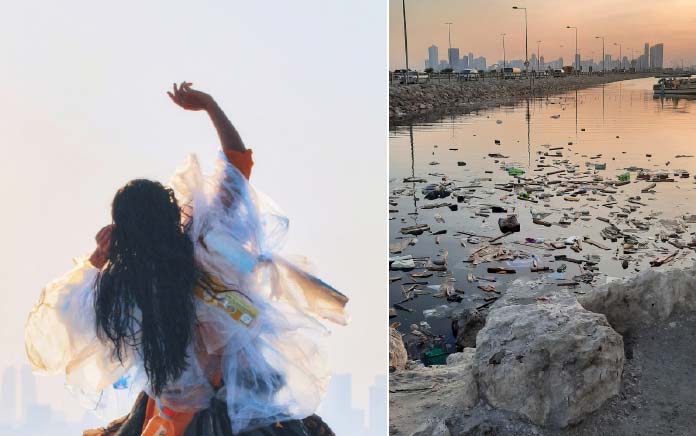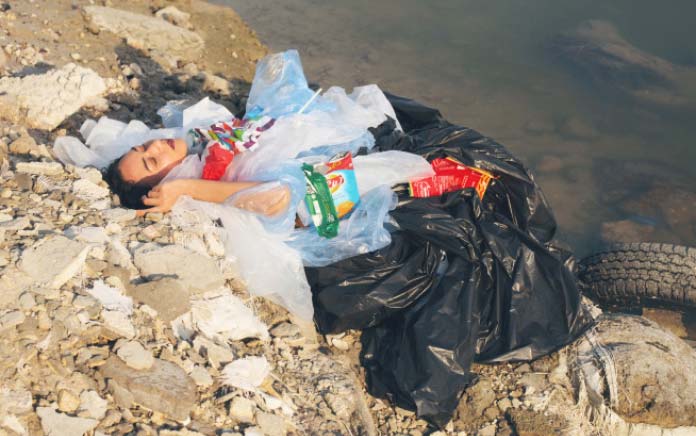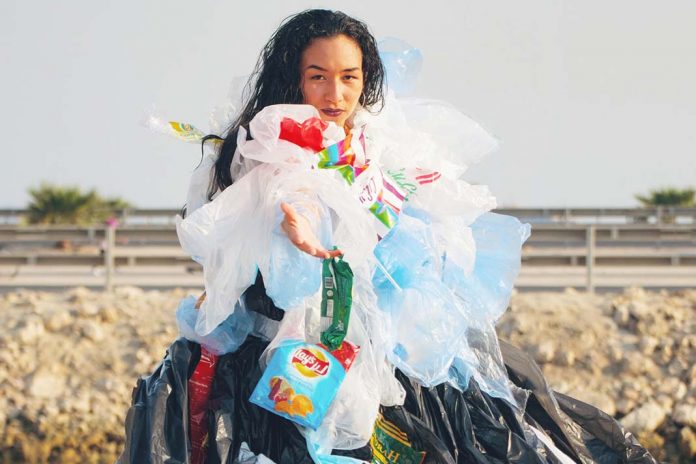Victoria Teo Reflects on the Fight Against Plastic Pollution In Bahrain
Throughout my time here as an expat in Bahrain, and before the pandemic hit the nation, my visits to various beaches around the island unveiled an unwelcome surprise – plastic pollution.
So, what is plastic pollution? Simply put, it’s the accumulation of litter, such as plastic bottles, plastic bags and waste that has been disposed of negligently.
Unfortunately, this is all too common, not only in Bahrain, but worldwide. Did you know that a great garbage patch of plastic, three times the size of France is floating in the Pacific Ocean alone? The rise in plastic pollution is a problem that we cannot afford to ignore any longer.
Throughout recent years, scientists have proven time and time again that this issue is increasing at an unprecedented rate. It is estimated that by 2050, there will be more plastic in the ocean than fish. What’s more disturbing is the fact that on average, human beings are now consuming roughly 5 grams of plastic each week, which is about the weight of a credit card, according to researchers. The long-term impacts of the consumption of microplastics is still unknown. I see fishermen and many locals go fishing here in Bahrain, yet, little do they know their catch of the day has probably ingested plastics.
 This issue is getting out of hand because marine wildlife suffers directly from the public’s irresponsible disposal of trash. It is estimated that the ramifications of plastic pollution, such as entanglement, ingestion, intoxication and starvation, affects up to 96% of aquatic biodiversity worldwide.
This issue is getting out of hand because marine wildlife suffers directly from the public’s irresponsible disposal of trash. It is estimated that the ramifications of plastic pollution, such as entanglement, ingestion, intoxication and starvation, affects up to 96% of aquatic biodiversity worldwide.
WHY IS IT A PROBLEM?
Bahrain is a beautiful country and I am sure that everyone intends to keep it that way. And for that reason, I felt compelled to act. I have taken part in beach clean initiatives, such as Cleanup Bahrain and other beach cleans through the 1% App. I went even further and started cleaning the beach in Hidd, my local area of residence. The trash is never-ending. I decided to create a garment from some of the litter I had collected to make a bold statement – this is an issue we cannot ignore. The garment is made from many plastic bags, bottles and crisp wrappers, as well facemasks, nylon rope and other random bits of trash. Unfortunately, I could not salvage everything because some of the litter had already deteriorated into microplastics. The garment is made for the sole purpose of showing how plastic pollution is consuming humanity at an alarming rate.

Wearing the garment alone was so stifling; I felt trapped and engulfed in the mess humanity had left behind. It made me realise just how badly our oceans and wildlife are suffering with this problem day in, day out. Despite the grave facts and figures, there is a glimmer hope. It all starts with us. We are all responsible for our actions. It is as simple as disposing of your litter correctly and making a conscious effort to protect and preserve the environment we all share.
There are many things you can do to turn this situation around. Join your local beach clean events, promote clean beaches and educate one another on the importance of keeping our environment clean and safe for future generations to come.
One action may seem insignificant, yet when done collectively by the nation, we can make a big difference.
For any avid beach cleaners, feel free to contact me on Instagram: @victoria.teo_


































